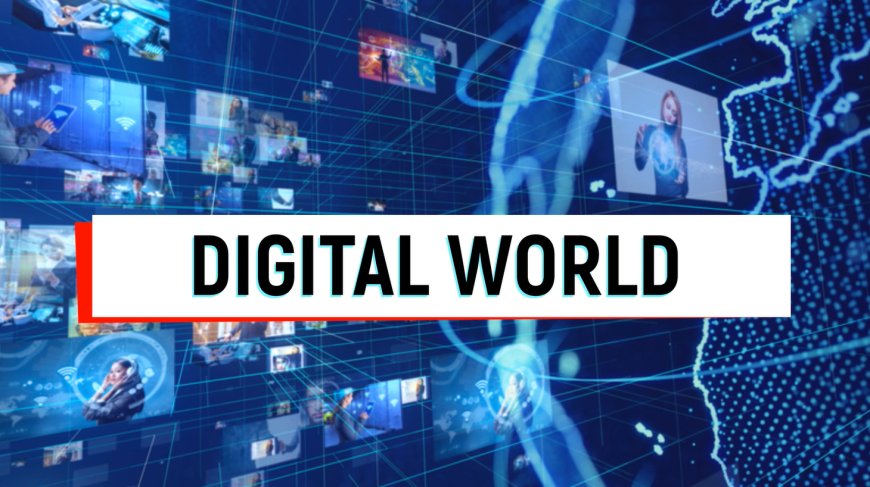The Digital World: Transformations and Implications
Digital world is the environment created by digital technologies and the Internet, encompassing various forms of digital communication, interaction, and information storage and processing. Here are some key components of the digital world

The "digital world" refers to the environment created by digital technologies and the Internet, encompassing various forms of digital communication, interaction, and information storage and processing. Here are some key components of the digital world:
-
Digital Technology: This includes computers, smartphones, tablets, and other electronic devices that digital communication and interaction.
-
Internet and Connectivity: The digital world relies on the Internet as a primary medium for communication and information exchange, connecting people and devices globally.
-
Social Media: Platforms like Facebook, Twitter, Instagram, and LinkedIn facilitate social interactions, networking, and the sharing of information in real time.
-
E-commerce: The digital world has transformed the way we conduct business, allowing for online shopping, digital payments, and global commerce.
-
Digital Content: This encompasses multimedia content such as videos, music, blogs, e-books, and podcasts, all of which are accessible through digital platforms.
-
Data and Information: The digital world involves vast amounts of data generation and collection, necessitating the use of data analytics and management tools to make sense of this information.
-
Emerging Technologies: Innovations such as artificial intelligence (AI), blockchain, and the Internet of Things (IoT) are continually shaping and transforming the digital landscape.
-
Virtual and Augmented Reality: These technologies create immersive experiences, enhancing entertainment, education, and various industries.
-
Digital Communication: Various forms of communication, including email, instant messaging, video conferencing, and more, have evolved significantly in the digital world.
-
Digital Culture: The digital world has given rise to new cultural phenomena, influencing behavior, interactions, and societal norms.
The Digital World: Transformations and Implications
The digital world has fundamentally transformed the way individuals and societies interact, communicate, and conduct business. This transformation is characterized by the proliferation of digital technologies that have permeated every aspect of human life, creating a landscape where information is readily accessible, and connectivity is ubiquitous. The implications of this digital revolution are profound, affecting social structures, economic models, and cultural norms.
At the core of the digital world is the internet, which serves as the backbone for a myriad of digital platforms and applications. Social media, e-commerce, and cloud computing are just a few examples of how the internet has reshaped personal and professional interactions. Social media platforms have revolutionized communication, enabling users to connect across geographical boundaries, share experiences, and mobilize for social causes. This democratization of information allows for diverse voices to be heard, yet it also raises concerns regarding misinformation and the polarization of public discourse.
In the economic realm, the digital world has given rise to new business models that challenge traditional paradigms. E-commerce has transformed retail, as consumers increasingly prefer the convenience of online shopping. This shift has led to the emergence of gig economies and remote work, altering labor dynamics and creating new opportunities for entrepreneurship. However, these changes also pose challenges, such as job displacement and the need for workers to adapt to rapidly evolving technological demands.
Culturally, the digital world fosters a global exchange of ideas and values, enriching societies but also leading to cultural homogenization. The accessibility of digital content allows for the spread of diverse cultural expressions, yet it can also result in the overshadowing of local traditions and practices. This duality necessitates a critical examination of how digital technologies can be harnessed to promote cultural preservation while embracing innovation.
Moreover, the digital world raises ethical considerations surrounding privacy, security, and data governance. As individuals increasingly share personal information online, the need for robust data protection measures becomes paramount. Policymakers and technology developers must collaborate to create frameworks that safeguard user privacy while fostering innovation and economic growth.
In conclusion, the digital world represents a complex interplay of opportunities and challenges. As society navigates this evolving landscape, it is essential to critically assess the implications of digital technologies on social, economic, and cultural dimensions. Embracing the potential of the digital world while addressing its inherent challenges will be crucial for fostering a sustainable and equitable future.
